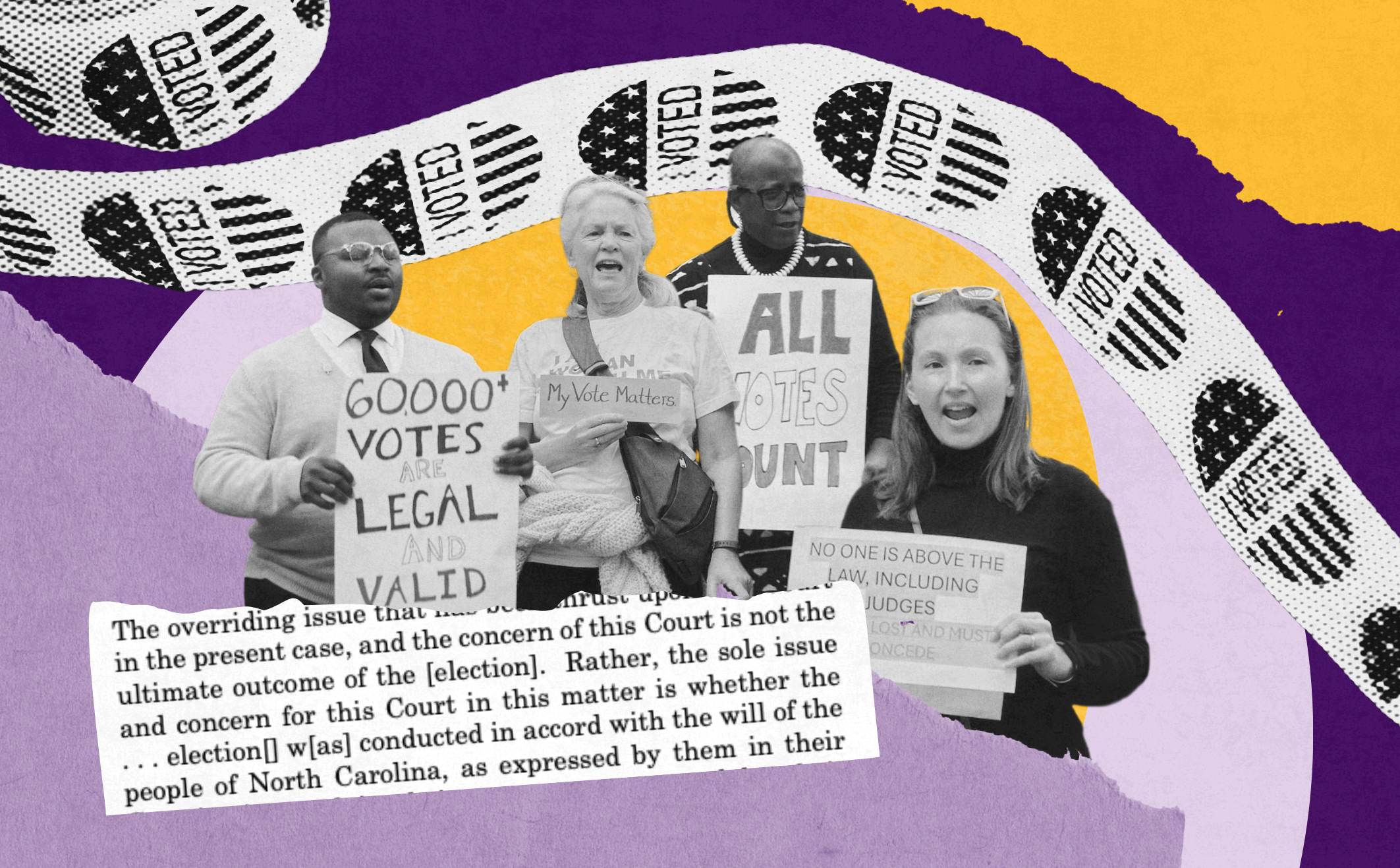VOTING RIGHTS
Advocating for Voters
SCSJ is committed to reducing barriers to the ballot box and making the freedom to vote safe and accessible. SCSJ also supports full access to the ballot for all incarcerated or formerly-incarcerated voters.
As Southern state legislatures increase their attacks on democracy, SCSJ is increasing our support for advocacy, communications, and education initiatives to combat voter suppression while continuing to bring litigation where warranted. In conjunction with our election protection efforts, we work to ensure voters of color can participate in the political process freely and safely. Election protection and election administration must be a focus every year, not just in election years. Furthermore, simply reacting to bad policies is not enough — we must remain proactive in defense of voter rights.
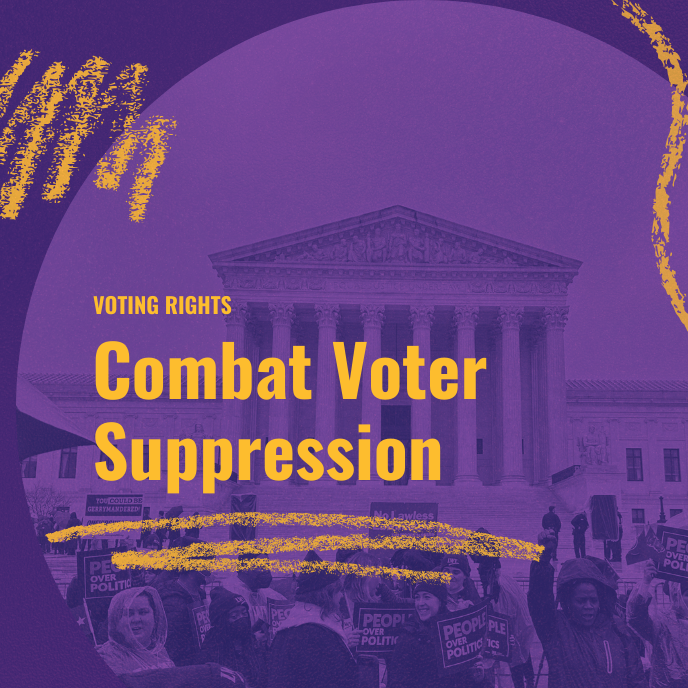
Voter Registration Types
Online Voter Registration (OVR) makes registration more convenient for voters, saves money for states, and leads to voter rolls that are more accurate and secure. In the more than two-thirds of states that have passed and implemented OVR, voters can register, verify, and update their registration records all online, leading to a more streamlined experience for both voters and the state and encouraging civic participation among new voters, especially young people.
Same-Day Registration (SDR) is one of the most powerful tools for enfranchising and protecting voters. SDR facilitates voting among voters who move frequently, creates a safety net for voters who may have been inadvertently removed from the rolls, and provides a convenient last-minute registration opportunity for all voters. In North Carolina, the one Southern state that allows it, SDR is utilized by all voters, as well as by every single age group and by several racial and ethnic groups across the state. SOLVE members across the South support SDR as an important enfranchisement tool and one that especially supports voting among young people, communities of color, and others who face barriers to the ballot box.
Automatic Voter Registration (AVR) is a powerful answer to registration challenges, allowing for the automatic registration of every voter during interactions with the DMV or other government agencies. In states that have already approved AVR, registration rates are significantly higher than they were before the policy was implemented, the cost of voter registration has decreased substantively, and voter rolls are more accurate and secure.
Language minorities often face multiple and significant barriers to voting, a reality that is exacerbated by the frequent lack of assistance for these voters at the polls. It is critical to ensure that all election materials — from registration forms and the ballot to signage at the polls — be translated into any language spoken by non-native English-speaking communities in any given precinct.
Eliminating Barriers to Voting Access
Voter identification laws are just one of many strategies to roll back decades of progress on voting rights, especially in Southern states. Thirty-four states have identification requirements at the polls. Of the seven states that have strict photo ID laws, under which voters must present one of a limited set of forms of government-issued photo ID in order to cast a regular ballot – no exceptions, the majority are in the South.
Voting Rights Restoration
People with past convictions face lifetime barriers to employment, housing, education, driver’s licenses, and other pathways to opportunity. These barriers make it difficult for returning citizens to achieve what we all seek: to support ourselves and our families, lead fulfilling lives, and positively contribute to our communities. Removing obstacles to opportunity not only allows returning citizens to move forward with their lives, but also improve public safety and economic prosperity across the South.
Resources like the Clean Slate Toolkit provide guidance for individuals seeking expungement, helping people restore their voting rights.
Voter Suppression in the Community
Stories From North Carolinians Who Could Be Denied The Right to Vote
Originally published in 2018, these 10 stories illustrate the adverse impacts that North Carolina’s voter ID law (S.B. 824) could have on NC voters.Combating Voter Suppression Resources
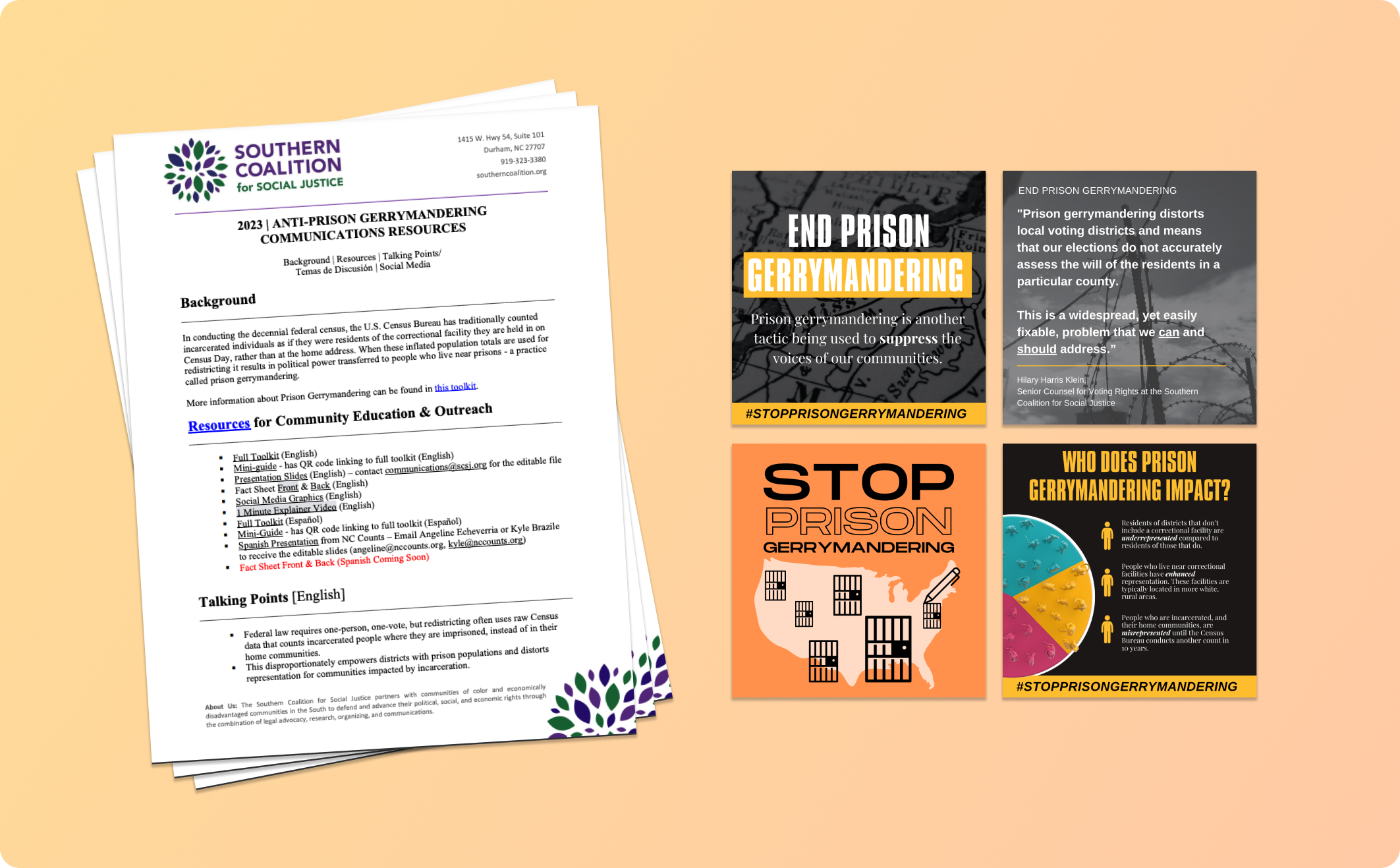
Anti-Prison Gerrymandering: Tools for Advocates
English and Spanish advocacy resources for folks working to counter prison gerrymandering, including background, talking points, and social media graphics.
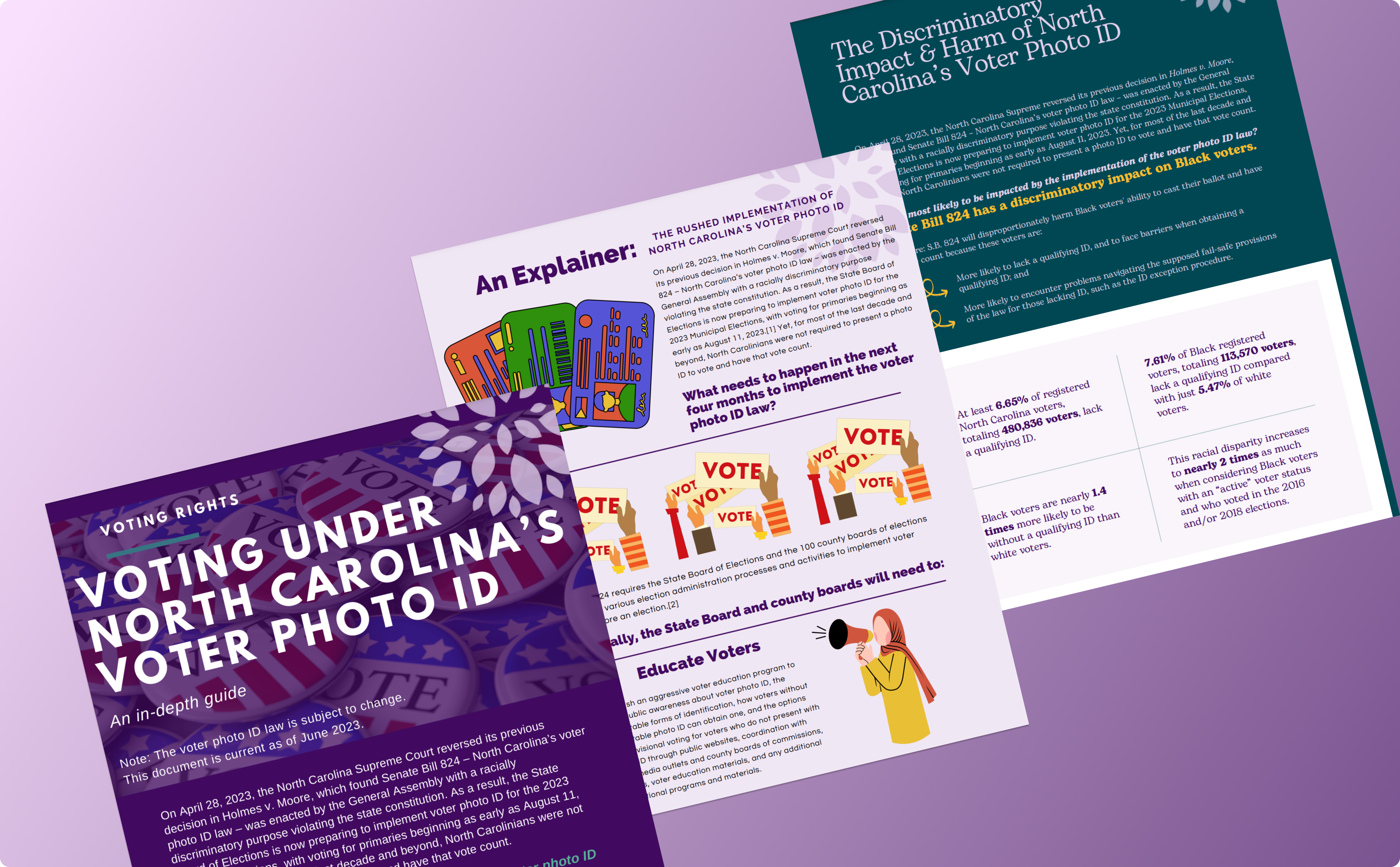
North Carolina Photo Voter ID Resources
Resources to help North Carolinian voters, organizations and lawmakers navigate the new rules around voter ID.
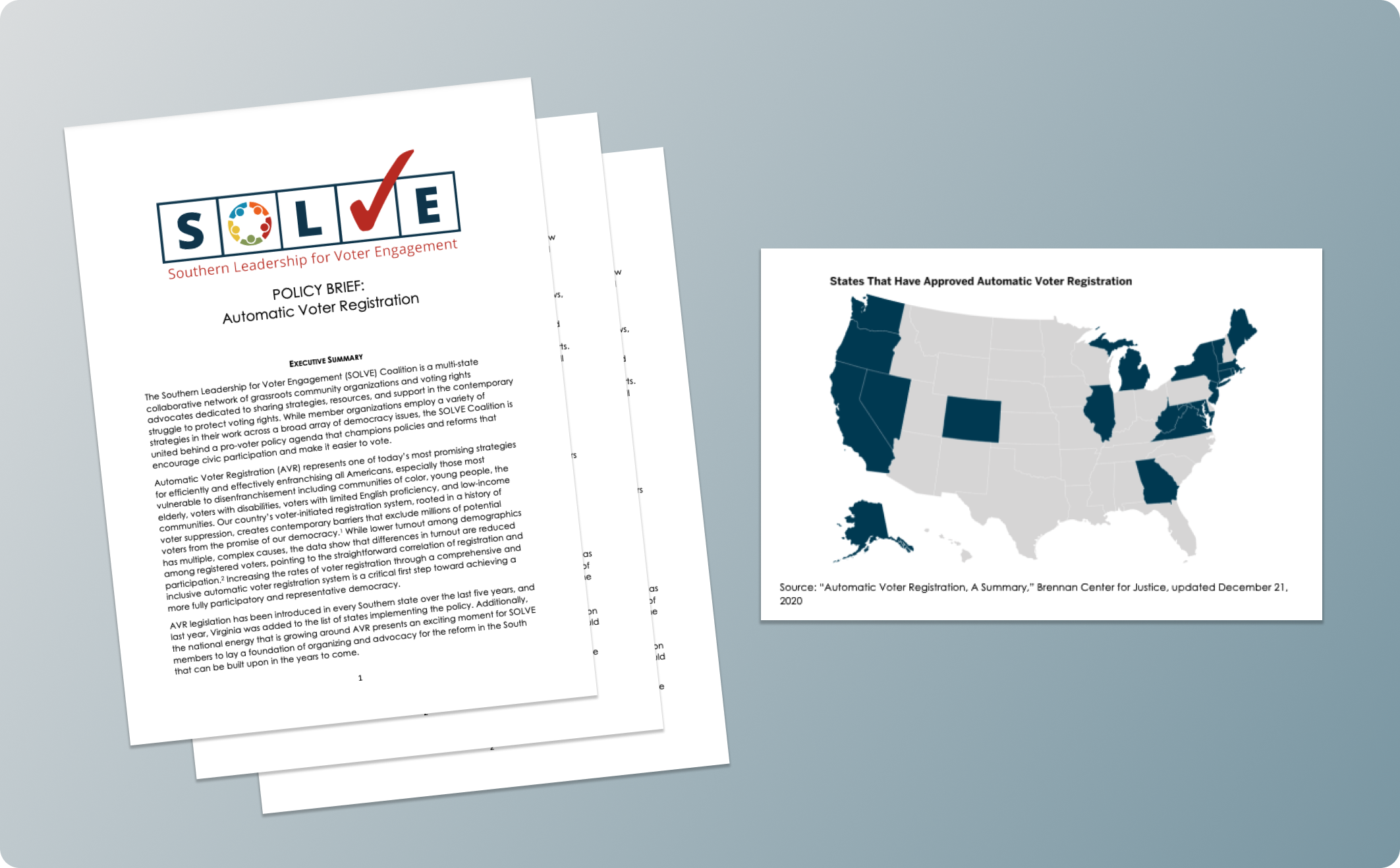
SOLVE Policy Brief: Automatic Voter Registration
This policy brief outlines Automatic Voter Registration in the United States and the benefits of AVR in relation to election protection and voting rights.
Combating Voter Suppression News
Statement on Judge Jefferson Griffin Conceding NC Supreme Court Race
RALEIGH, N.C (May 7, 2025) — Southern Coalition for Social Justice (SCSJ) and Forward Justice have issued the following statement about Judge Jefferson Griffin’s concession of the North Carolina Supreme Court race from November that incumbent Justice Allison Riggs won. The concession comes after a federal judge ordered the North Carolina State Board of Elections…
Read More Statement on Judge Jefferson Griffin Conceding NC Supreme Court Race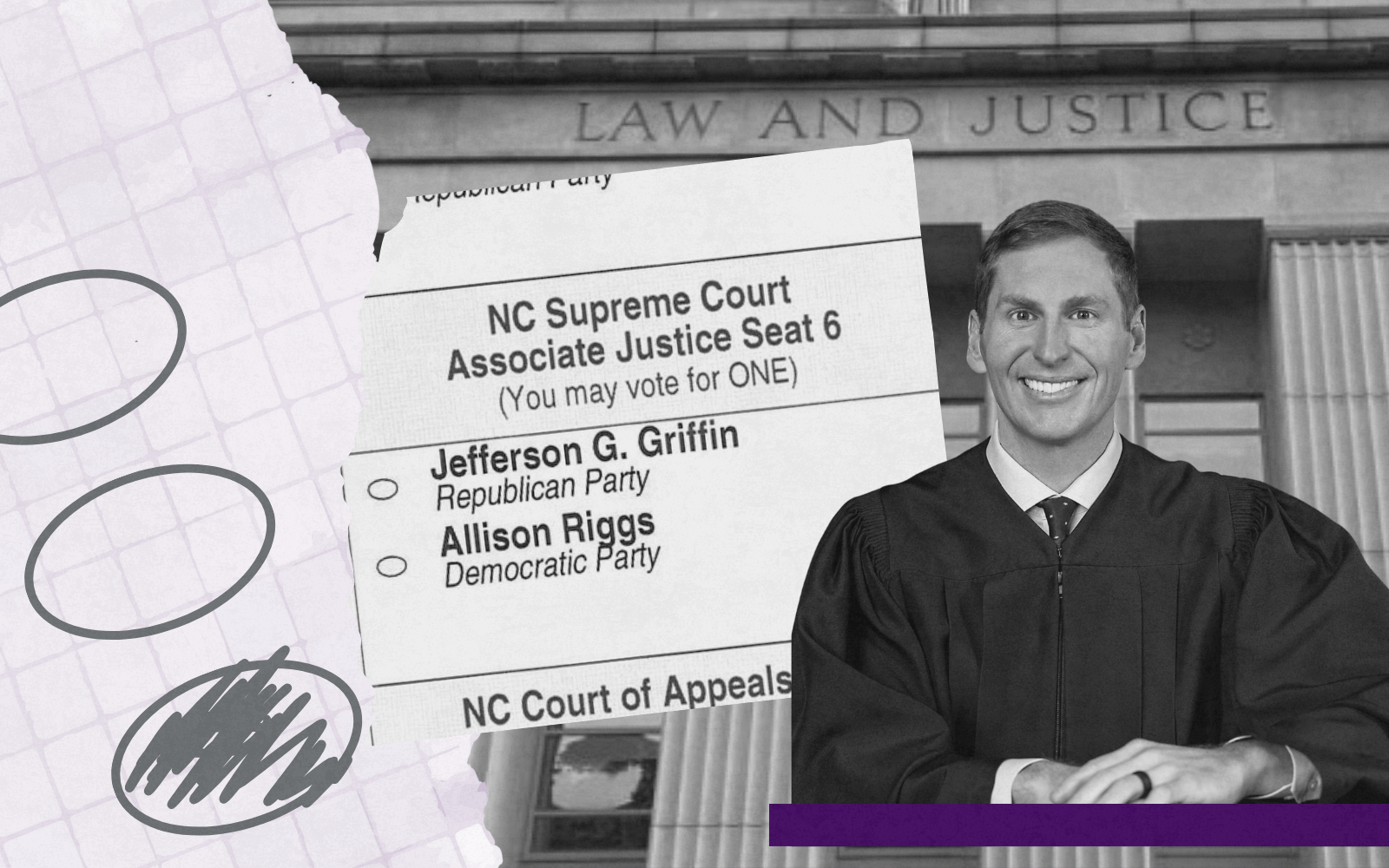
NC Court of Appeals Order Threatens 60,000 Votes in Griffin Election Challenge
RALEIGH, N.C (April 4, 2025) — The North Carolina Court of Appeals issued a ruling today — four months post-election — commanding the State and County Boards of Elections to contact more than 60,000 innocent voters and give them less than 15 business days to “cure” their lawfully-cast ballots, despite no evidence they were invalid…
Read More NC Court of Appeals Order Threatens 60,000 Votes in Griffin Election Challenge